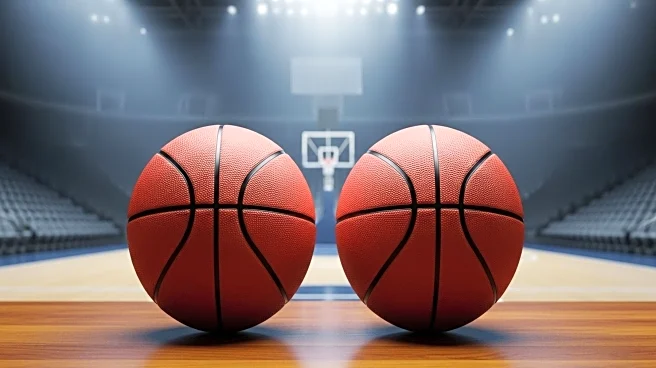What's Happening?
A'Ja Wilson, a prominent WNBA player and back-to-back MVP, has expressed her support for Napheesa Collier, who recently criticized WNBA Commissioner Cathy Engelbert. Collier accused Engelbert of poor leadership and made controversial remarks about the value of players like Caitlin Clark. The criticism comes amid tense negotiations over the collective bargaining agreement (CBA) set to expire on October 31. Collier's comments have sparked a broader discussion about player compensation and league management, with several players rallying behind her stance. Engelbert responded by emphasizing her commitment to the league's future and expressing disappointment over Collier's characterization of their discussions.
Why It's Important?
The ongoing dispute highlights significant issues within the WNBA, particularly regarding player compensation and league governance. As the CBA expiration approaches, the players' dissatisfaction could lead to more intense negotiations or potential disruptions in the league. The support for Collier from other players indicates a growing solidarity among athletes demanding better conditions and recognition. This situation could influence public perception of the league and impact its ability to attract and retain top talent. The outcome of these negotiations may set a precedent for future player-league relations and affect the WNBA's growth and stability.
What's Next?
With the CBA set to expire soon, both the players and the league must navigate these tensions to reach an agreement. The players' association may push for more favorable terms, including better compensation and improved league management. Engelbert and league officials will likely need to address these concerns to prevent potential strikes or other disruptions. The resolution of these negotiations will be crucial in determining the future dynamics between players and league executives, potentially influencing the WNBA's operational strategies and public image.
Beyond the Headlines
The conflict between players and the league raises broader questions about the role of leadership in sports organizations and the balance of power between athletes and executives. It also underscores the importance of effective communication and negotiation in maintaining a healthy sports ecosystem. The players' demands for better compensation reflect wider societal discussions about fair pay and recognition in professional sports, which could lead to long-term changes in how sports leagues operate and prioritize player welfare.









